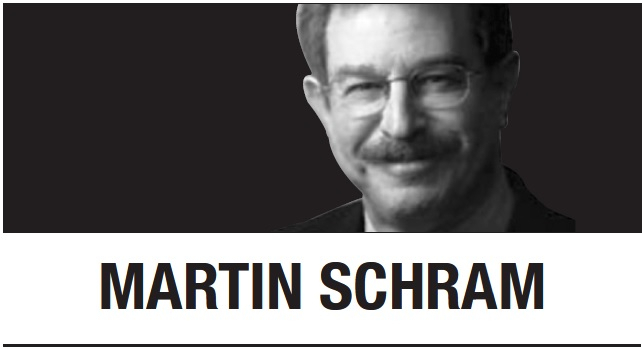
President Richard Nixon was work-vacationing in his Western White House estate at San Clemente, California, and not far away, the White House press corps was about to be briefed by the world’s most famous anonymous authority on all foreign policies.
Which is to say, another ritual Vietnam War policy/press corps kabuki was about to start.
It began the usual way, with Nixon press secretary Ronald Ziegler saying national security adviser Henry Kissinger was about to explain a significant new development in the Vietnam War – and that this would be a “background” briefing in which this most famous and influential official could only be identified in news stories as an anonymous “senior administration official.”
Next, as usual, some reporter asked why the briefer couldn’t be properly identified. Just because, Ziegler elaborated. We could either abide by the ground rules or we could leave.
At that point, Newsday’s young Washington bureau chief saw something and spoke up. (Yep, me.) I noted that among the dozens of journalists in the room were correspondents from Tass and Izvestia, the Soviet Union’s government-run news organizations. And I asked: Is it now the Nixon White House’s policy that the Soviet Union’s top officials can know the identity of America’s wartime policy explainer – but it must be kept secret from America’s citizens?
Ziegler leaned toward Kissinger. Whispering commenced. Then Ziegler announced their decision: The rule is the rule. I must abide by it or I must leave before the briefing begins.
Well, I was about to pack up and go – and others seemed ready too. But then I noticed something – and stopped. I said I’d abide by their rule. Some of my colleagues looked surprised; but they too chose to stay.
My Newsday article the next morning reported a new policy and explained to readers that, according to the White House’s ground rules, the details could only be attributed to an anonymous senior administration official. The next sentence reported the policy had been announced at a briefing attended by dozens of correspondents, including reporters from Tass and Izvestia – plus one private citizen: David Kissinger, teenage son of Dr. Henry Kissinger, the national security adviser to the president of the United States of America.
The next morning, as I headed out to our motorcade buses, Dr. Kissinger walked up and, in the deep rumble of his morning voice, he said: “Well, I saw your article this morning, Marty.” (In those days that took considerable effort; Newsday’s newspapers were all in New York; we were in California; the internet was decades ahead of us all.)
I said that he must have been impressed by how meticulously I followed his ground rules. “Very funny,” he replied. His famously guttural diplo-voice never hinted whether he really meant it; but what he did next surely did. He already had in his hand the hotel room key he’d forgotten to turn in – and he presented it to me as if he was awarding an Oscar.
“A trophy for your wall,” he said, as his mouth worked at suppressing what could have become a grin. And being caught grinning with me wouldn’t do at all. After all, his boss infamously banned me and Newsday from his historic, era-opening trip to China as payback for a Newsday series I worked on about Nixon, his Key Biscayne, Florida, banker friend Charles (Bebe) Rebozo, and their finances. And there were all those Watergate revelation pieces our Newsday Washington bureau had done.
By now you have read and heard the news that Henry Kissinger died last week at age 100. He had been sharp and willing to advise until the very end. In July, Kissinger traveled to Beijing and met with President Xi Jinping. The Chinese called him a “double centurion” because the 100-year-old Kissinger had visited China more than 100 times.
Kissinger has been praised and vilified for policies he had championed – and sometimes cloaked in secrecy, during a career that extended from the coldest of the Cold War to the tumult of whatever we choose to call today’s era. He designed and promoted Nixon’s Vietnam War secrecies – including America’s covert bombings of Cambodia and Laos – and the coup that replaced Chile’s Marxist President Salvador Allende with the dictator Augusto Pinochet.
He always had a remarkable way with words. I remember one small session in his White House office when another reporter asked a perfectly fair, but gotcha-like question (Dr. Kissinger, you recently said such-and-such). Kissinger nodded and dryly noted: “Not only did I say it, but it had the added virtue of being true.”
At his best and all the rest, Kissinger was more than unique. He always knew where he stood, with whomever he was with.
Martin Schram
Martin Schram, an op-ed columnist for Tribune News Service, is a veteran Washington journalist, author and TV documentary executive. -- Ed.
(Tribune Content Agency)
-
Articles by Korea Herald



















![[Today’s K-pop] Treasure to publish magazine for debut anniversary](http://res.heraldm.com/phpwas/restmb_idxmake.php?idx=642&simg=/content/image/2024/07/26/20240726050551_0.jpg&u=)